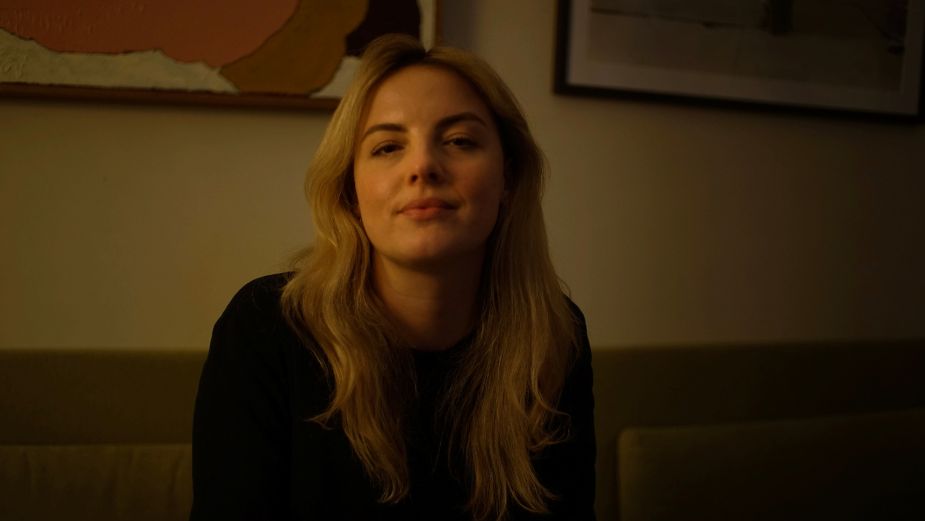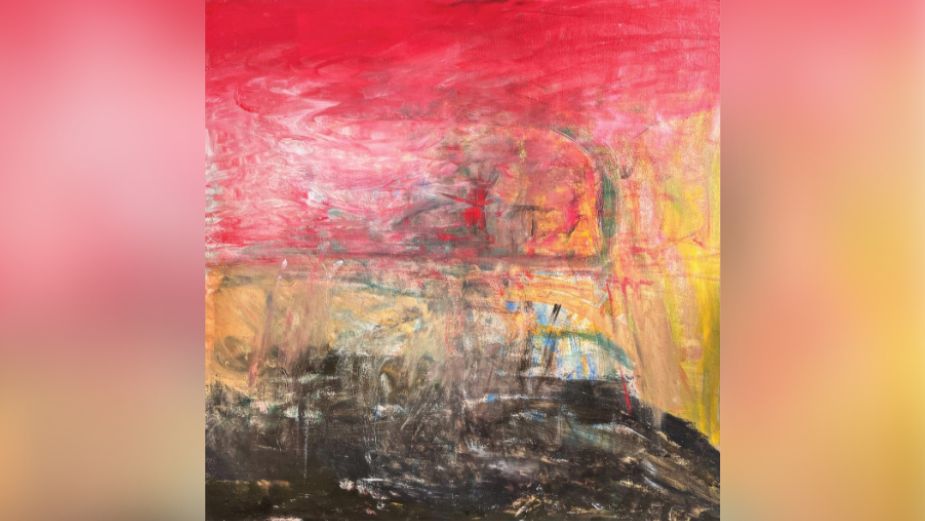
Uprising: How Jess Evernden Dropped Out of High School and Became a Thinkerbell Producer

Jess Evernden has been many things, but at the moment she is, sometimes at least, a painter. “It’s a journey of becoming,” she says of her art. “Painting started as art therapy for me - it's a practice that calls upon a very, very different set of faculties to what I use during the day. Everything that I do during the day has a very clear objective. When I paint, I'm forced to use a part of my system that has no objective and no agenda.”
When asked why she needed to find such a particular expression of self outside of working hours, Jess is blunt. “It’s only in the past few years, through that therapy journey, that I’ve been able to realise that I did not have an identity outside of work. It was my reason for existence. I’ve had to find a vision of myself outside of that - thanks to all my strange life experiences.”
These life experiences are multivariate and fascinating. Jess’s journey to becoming a lead producer at Thinkerbell has been anything but straightforward. It has involved multiple continents, leaving high school at 15, and a lot of self discovery - but it has resulted in a confident and capable producer whose self-knowledge outstrips most of her peers. Her demeanour is zen-like, good-humoured, and flush with easy charm. But, as she tells it, things didn’t start this way.
Jess’s journey began in New Zealand, but soon took its first steps overseas - to America. “I grew up in a very religious family, and when I was 11, they decided that they wanted to move us to a sort of religious homebase in the US. Let's take you to the Midwest. We were there for about a year and a half - and then, all of a sudden, the business my dad was involved in just went kaput. We lost everything, as a family - we were on church aid. So we moved back. And I didn’t take that transition very well.”
Jess’s young adolescence was, in her words, “very naughty”. She paints a picture of an uncertain and disrupted youth - one where the structured supports of school, church, and family simply were not working. “I ended up dropping out of school with the permission of my parents because they just - God bless them - they felt like ‘we don't even know what to do here.’ So I left home and went back to Missouri. I do wonder how my roads would have differed had I not dropped out of the school system at the deeply copacetic age of 15. I could just never make it all fit together in adolescence; school just didn’t work for me.”
Jess maintains a startlingly even keel when discussing the ups and downs of her past. With a wry smile and a knowing tone, she digs through her self-described trauma with the ease and wit of a born storyteller. It is only on this subject - her early working days - that she grows quiet and contemplative.
“Work,” she says, “became a necessity - the objective of my daylight hours was to get paid… And because I was just making money to survive, I kind of missed that whole adolescence, that whole period of life.”
She pauses, letting the wry smile return. And then she carries on.
“I ended up working in administration for Toyota; doing all the overseas/import paperwork, and sales and reports and margins and things like that. But I worked really closely with the marketing department, and I was always so fascinated about what they were doing. I liked the humanity of it. There was a human, creative touch. And then the Christchurch earthquakes happened.”
One hundred and eighty-five people died in the earthquakes, which rank as the fifth deadliest disaster in New Zealand’s history. For Jess, it was her “first real brush with mortality... It can’t not change your life”.Having been considering a move to Melbourne for some time, the quakes forced a reckoning with what Jess really wanted from her career. And so, she packed up and made her way to Victoria.
“Within two years I was producing small production jobs, seeing scripts through to master. And meeting a lot of people. Impressive people with impressive skills, generating impressive outcomes. Producing felt like the cooperation of all my best abilities and I took to it.”
Her time freelancing as a creative producer had taken Jess from a position of working to survive to one of finding direct fulfilment through her career. The transformation was significant. But her journey to the relaxed and composed adult she is today was not yet quite complete.
“I really was just a machine. I was a one-sided die.” When, after several years of continued production work, Jess took an extended break, she found it pretty much impossible. “When faced with [work’s] absence, I simply did not know how to be,” she says.

An Extreme Act of Will, art by Jess Evernden
That’s where her painting comes in. “Picking up a paint brush was a part of my therapy journey,” she says. “Not having had an adolescence to speak of, what I really needed was to get back to some sense of myself that’s divorced from just outcomes. I had to rediscover who I actually was. And painting… painting is a bridge between my physical body and the expression of heart. Painting is play. To approach the canvas with no agenda, and go on to find something to say is a really wonderful thing. A natural opposite to what fills my daylight hours.”
Today, Jess works as a lead producer for one of Australia’s most in-demand and respected creative agencies. After a life spent amidst the grind of working to survive, she’s found a career and an approach which she happily calls fulfilling.
The key to all of this? A simple state of mind, she claims, which she reached during that artistic therapy journey. “Professional endeavours aside, don’t forget to play. Use your hands. And take yourself entirely unseriously, often.”













